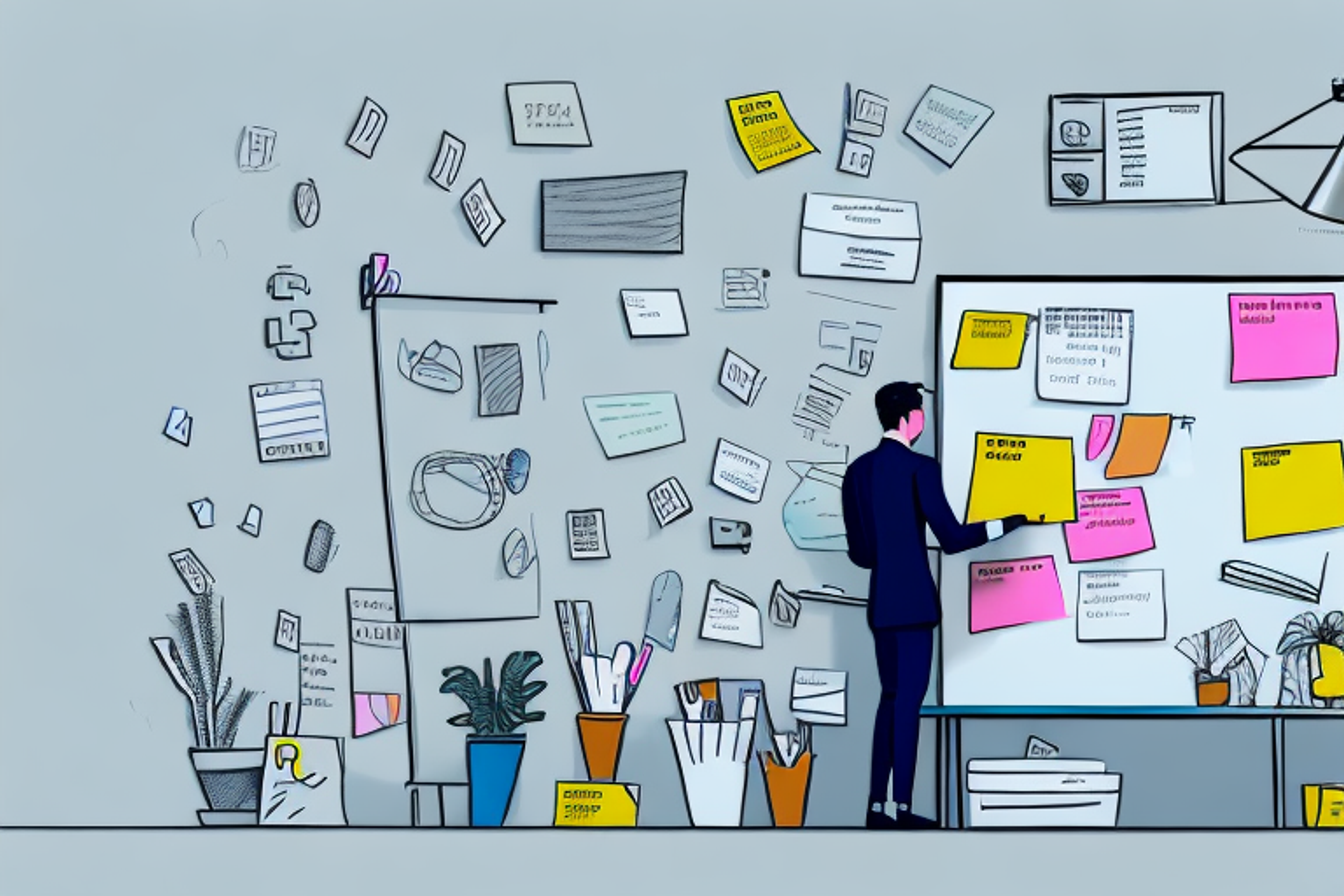How to Prepare for PwC Management Consulting Behavioral Interviews?
Get ready to ace your PwC management consulting behavioral interviews with our comprehensive guide.
Posted April 10, 2025

Table of Contents
If you're preparing for a PwC management consulting behavioral interview, you're probably wondering what you can do to increase your chances of impressing your interviewer and landing the job. Fortunately, with the right preparation and mindset, you can effectively showcase your strengths and experiences in a way that aligns with the company's values. Follow these strategies to ace your next PwC management consulting behavioral interview.
Understanding the PwC Management Consulting Behavioral Interview Process
The first step in preparing for a PwC management consulting behavioral interview is to understand what the process entails. Behavioral interviews are designed to evaluate candidates based on how their past experiences align with the company's values and culture. Instead of focusing solely on technical skills and knowledge, PwC management consulting interviewers are interested in hearing about how you've handled specific situations in the past. They'll ask open-ended questions that prompt you to share stories or examples from your life that demonstrate your competency in various areas.
It's important to note that PwC management consulting behavioral interviews are not just about showcasing your accomplishments. Interviewers are also interested in understanding how you approach challenges and setbacks. They want to see that you have the ability to learn from your mistakes and adapt your approach accordingly. Therefore, it's important to be honest about your experiences and be prepared to discuss how you've grown and developed as a result of them.
What to Expect in a PwC Management Consulting Behavioral Interview
During your PwC management consulting behavioral interview, you'll likely be asked questions about your strengths, weaknesses, and experiences in various areas, such as communication, problem-solving, leadership, and teamwork. The interviewer will provide specific prompts, such as “Tell me about a time when you had to resolve a conflict with a team member,” and ask you to walk through your thought process and actions during that situation. Your interviewer will be looking for evidence of your ability to communicate effectively, think critically, and work collaboratively.
In addition to the behavioral questions, you may also be asked about your knowledge of the consulting industry and your understanding of PwC's services. It's important to do your research beforehand and be prepared to discuss how your skills and experiences align with PwC's values and goals.
Furthermore, the interviewer may ask you to provide examples of how you have demonstrated innovation and creativity in your previous roles. They may also ask about your experience working with clients and how you have managed difficult situations or conflicts with them. It's important to be honest and provide specific examples to showcase your skills and abilities.
Behavioral Interview Questions Commonly Asked by PwC Consulting
Some common behavioral interview questions you may encounter during your PwC management consulting interview include:
- Describe a time when you had to lead a team through a difficult project.
- Tell me about a time when you had to resolve a conflict with a coworker.
- Give an example of a project you worked on that required you to be innovative.
- What steps do you take to ensure you're meeting project deadlines?
- Tell me about a time when you had to adapt to an unfamiliar situation.
It's important to note that while these are common behavioral interview questions, they are not the only ones you may be asked during your PwC management consulting interview. Be prepared to discuss your past experiences and how they relate to the consulting industry. Additionally, be ready to showcase your problem-solving skills and ability to think critically under pressure. Remember to provide specific examples and quantify your achievements whenever possible.
Examples of Successful Behavioral Interview Responses for PwC Consulting
When answering behavioral interview questions, it's helpful to use the STAR method. STAR stands for Situation, Task, Action, and Result, and it's a framework that helps you structure your responses in a clear and concise way. Here's an example of a STAR response:
Situation: When I was working on a team project, one of my team members had trouble meeting deadlines and wasn't contributing as much as the rest of us.
Task: My task was to address the issue without causing conflict or making the team member feel singled out.
Action: I approached the team member privately and expressed my concerns in a non-accusatory manner. We discussed some ways in which I could support them and worked together to come up with a plan for them to complete their responsibilities more effectively.
Result: The team member was able to improve their performance and was more engaged in the project. We were able to complete the project on time and with high quality.
It's important to note that when using the STAR method, you should focus on highlighting your own actions and contributions to the situation. While it's important to acknowledge the contributions of others, the interviewer is interested in hearing about your specific role and how you handled the situation.
The STAR Method: How to Use it in PwC Management Consulting Behavioral Interviews
As mentioned earlier, the STAR method is a useful tool for structuring your responses during a PwC management consulting behavioral interview. When answering a question, start by providing the Situation and Task, then describe the Actions you took to resolve the situation and achieve your goals, and finally, detail the Results you achieved. This format ensures that your responses are clear, concise, and relatable to the interviewer.
It is important to note that the STAR method is not just a formulaic approach to answering interview questions. Rather, it is a way to showcase your problem-solving skills and demonstrate your ability to think critically and strategically. By using the STAR method, you can provide concrete examples of how you have successfully tackled challenges in the past, which can give the interviewer confidence in your ability to handle similar situations in the future.
Another benefit of using the STAR method is that it allows you to highlight your strengths and accomplishments in a structured and organized way. By breaking down your responses into specific components, you can ensure that you are providing a comprehensive and detailed answer that showcases your skills and experience. This can be particularly helpful in a competitive job market, where you need to stand out from other candidates and demonstrate your unique value proposition.
Techniques for Crafting Effective Responses to PwC Management Consulting Behavioral Questions
In addition to using the STAR method, there are other techniques you can use to craft effective responses to PwC management consulting behavioral questions. For example, you should focus on providing specific and relevant examples from your past experiences. Use concrete details to paint a vivid picture of the situation, and highlight what you learned from the experience.
Another technique to consider is to use the CAR method, which stands for Context, Action, and Result. This method involves providing a brief context for the situation, describing the actions you took to address the situation, and highlighting the results of your actions. This approach can help you structure your response in a clear and concise manner.
It's also important to tailor your responses to the specific consulting role you are applying for. Research the company and the job description to understand the skills and qualities they are looking for, and try to incorporate these into your responses. This will demonstrate your understanding of the role and your ability to meet the company's needs.
Preparing for Competency-Based Questions in PwC Management Consulting Interviews
Competency-based questions are designed to assess your ability to perform specific tasks or demonstrate certain skills. To prepare for these types of questions, review the job description and identify the key competencies that the role requires. Then, think about how you've demonstrated those competencies in your past experiences. Remember to use the STAR method to structure your responses, and practice your answers with a friend or mentor.
It's also important to research the company and the industry before your interview. This will help you understand the context in which the competencies are being assessed and allow you to tailor your responses accordingly. Additionally, be prepared to provide specific examples of how you've applied your skills and competencies in a team setting, as teamwork is often a key aspect of consulting roles. Finally, don't forget to ask questions during the interview to demonstrate your interest and engagement in the role and the company.
Strategies for Presenting Yourself as the Ideal Candidate During a PwC Management Consulting Behavioral Interview
During a PwC management consulting behavioral interview, it's important to present yourself as the ideal candidate for the role. To do this, focus on aligning your responses with the company's values and culture. Research the company's mission statement, and identify ways in which your experiences and strengths align with their goals. Highlight your unique skills and experiences, and demonstrate your passion and enthusiasm for the job.
Tips for Overcoming Nerves and Anxiety During PwC Management Consulting Behavioral Interviews
It's normal to feel nervous or anxious during a PwC management consulting behavioral interview. However, there are ways to manage these feelings and perform at your best. First, practice deep breathing techniques to calm your nerves before the interview. Second, remind yourself that the interviewer wants to get to know you and your experiences, so be yourself and be authentic. Finally, focus on your strengths and experiences, and be prepared to share specific examples of how you've demonstrated your competencies in the past.
How to Research and Understand the Company Culture at PwC Before Your Interview
Researching the company culture at PwC before your interview can help you align your responses with the company's values and understand what the interviewer is looking for. Explore the company's website, mission statement, and social media channels to get a sense of their culture. You can also reach out to current or former employees to learn more about their experiences at the company.
How to Follow up After a PwC Management Consulting Behavioral Interview
After your PwC management consulting behavioral interview, it's a good idea to follow up with a thank-you email or note. This shows that you're proactive and appreciative of the interviewer's time. Keep your message short and sweet, and reiterate your interest in the role and the company.
Common Mistakes to Avoid During a PwC Management Consulting Behavioral Interview
Finally, there are some common mistakes to avoid during a PwC management consulting behavioral interview. One of the biggest mistakes is not providing specific examples of your past experiences. Another is not focusing on the competencies that are most relevant to the role. Additionally, avoid using overly technical jargon or industry-specific terms that the interviewer may not understand.
Best Practices for Dressing and Conducting Yourself Professionally During a PwC Management Consulting Behavioral Interview
Finally, it's important to dress and conduct yourself professionally during a PwC management consulting behavioral interview. Dress in business attire, and arrive early to the interview. Greet your interviewer with a firm handshake and maintain eye contact throughout the interview. Speak clearly and confidently, and avoid interrupting the interviewer or talking over them. Finally, don't forget to express your gratitude for the opportunity to interview for the role.
For more expert tips on how to break into management consulting, check out these valuable resources:
- How to Successfully Transition from Finance to Management Consulting: A Comprehensive Guide
- Mastering Case Interview Math: Essential Formulas
- Writing a Winning Consulting Cover Letter: A Comprehensive Guide
- Understanding the Salary Structure in Management Consulting
- Mastering Consulting Case Frameworks: A Comprehensive Guide



















